#syfy Children of Dune
Text

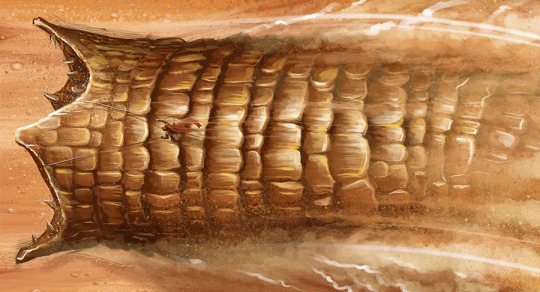

Frank Herbert's DUNE: Complete Collection includes the DUNE & CHILDREN OF DUNE miniseries from Umbrella Entertainment and SYFY with an exclusive 160-page book, poster & replica lobby cards. You can also build your own sandworm! Releasing Nov. 3.
Pre-order now 🛒 https://amzn.to/3RM1H5w #Dune
50 notes
·
View notes
Text
Paul Atreides from Frank Herbert's Dune (2000) and Frank Herbert's Children of Dune (2003) shares his actor with Adam Smasher from Cyberpunk 2077 and Edgerunners.
Portrayed by Alec Newman

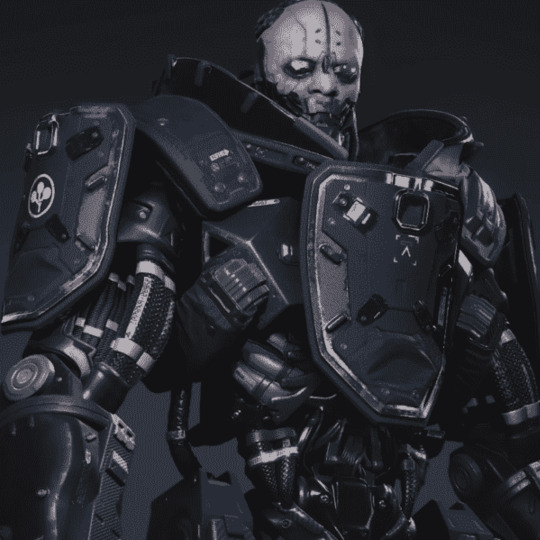
#same voice actor#voice acting#submission#frank herbert's dune#children of dune#cyberpunk 2077#cyberpunk edgerunners#syfy#cd projekt red#studio trigger#netflix#🏴
8 notes
·
View notes
Text
The best part about the SyFy Children Of Dune continues to be the vast amount of crazy space incest. nothing says love like giving your insane sister the clone of your best friend as a sex toy.
ok, and James McAvoy having inappropriate sexual tension with his twin, and stroking his own nipples.

8 notes
·
View notes
Text
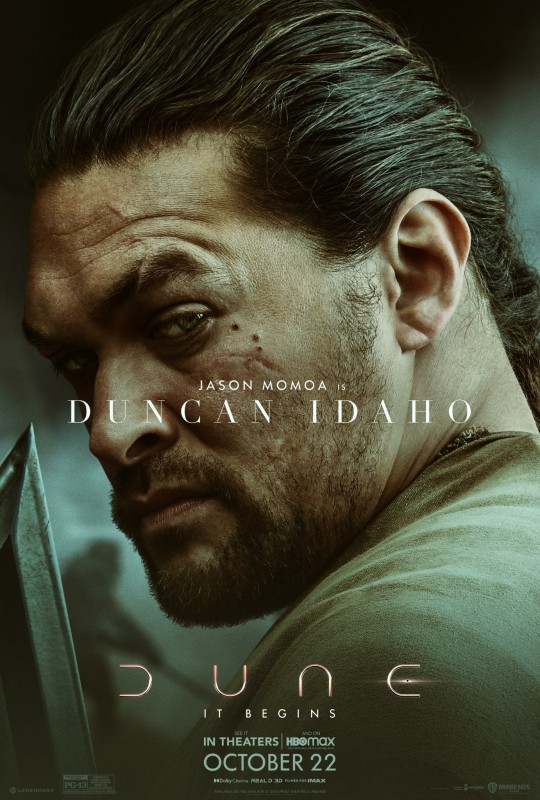




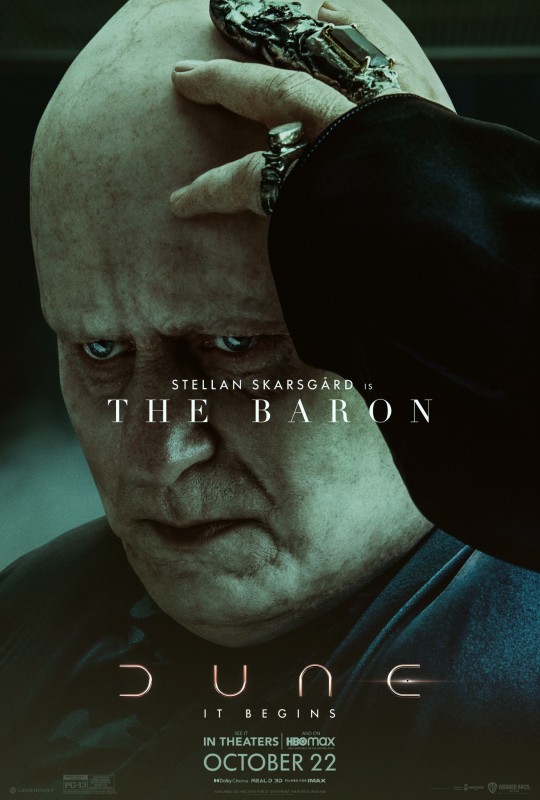
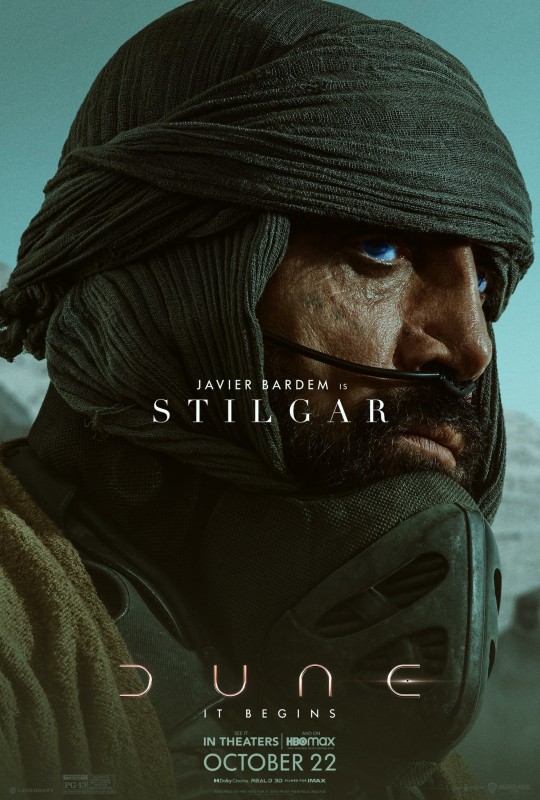

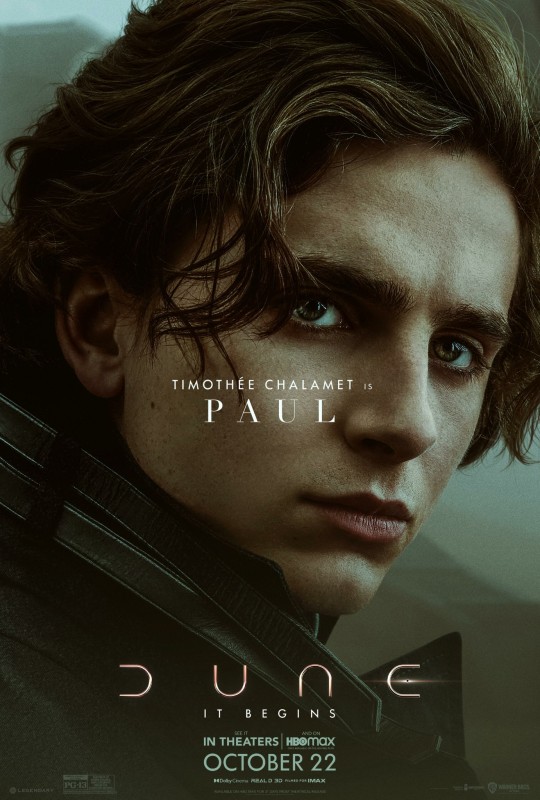
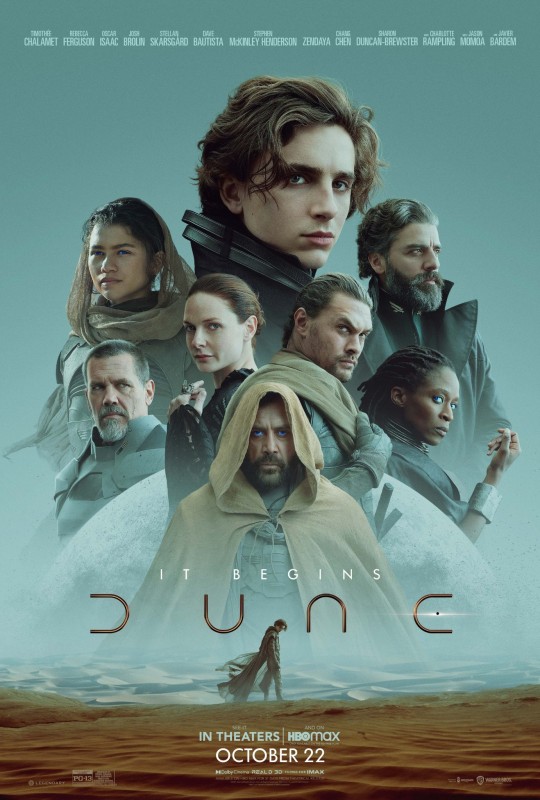
W A T C H I N G
I saw the 1984 version, but it was confusing to me.
I liked 'Dune' & 'Children of Dune' on SyFy channel in the early 2000s, also confusing, but more epic and colorful scale. But I can never find the DVDs of it, and the ones out there are expensive beyond ridiculous pricing!
And Denis Villeneuve is such a visionary, it's still rather 'alien' to understand. But it's very compelling story.
#DUNE (2021)#DENIS VILLENEUVE#FRANK HERBERT#Timothee Chamalet#Rebecca Ferguson#Oscar Isaac#Josh Brolin#Stellan Skarsgård#Dave Bautista#Stephen McKinley Henderson#Zendaya#David Dastmalchian#Chang Chen#Sharon Duncan-Brewster#Charlotte Rampling#Jason Momoa#Javier Bardem#SCI-FI#FANTASY#Babs Olusanmokun#Golda Rosheuvel#Roger Yuan#Benjamin Clementine#EPIC STORY#WATCHING#SCI-FI EPIC
52 notes
·
View notes
Text
Dune: Part Two (2024), Denis Villeneuve
BIPOC
Dune: Part Two and the Discussion of MENA Representation
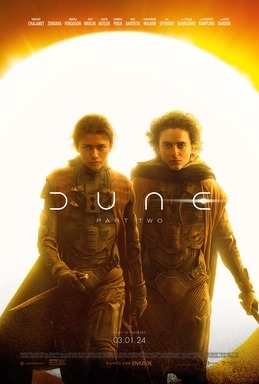
Review Link: https://www.rottentomatoes.com/profiles/ratings/WYdFQDHR9tGJf9wiWXh8ZFR8iGGCaLHwBhawIZ0ubbCexiapiJVTWOFeeCzdIpjhmXFp4u11CYNTl4fOPSWQfkWC6bIb6SyBFVXfO4TZzc4m/movie
youtube
Following its much-anticipated release, the long-awaited second installation of Denis Villeneuve’s Dune adaptation has proven itself a sci-fi spectacle that must be experienced to be believed.
It’s an outrageous combination of awe-inspiring cinematography, adept writing, and the talents of an all-star cast topped off by a score by veteran composer Hans Zimmer. The result: a feast for the senses that presents the stark realization that films on a scale this epic only come around once or twice a generation.
For those unfamiliar with the source material, the full extent of how truly epic this is may be lost. Part of the beauty of Dune is that Villeneuve simplified the story in such a way that it can be understood by moviegoers with no connection whatsoever to author Frank Herbert’s novel, or ever-having-seen the adaptations by David Lynch or SyFy (f/k/a Sci Fi). Within this simplification, the story of Dune doesn’t become reductive, nor are essential plot points lost. Like all adaptations, there are components lost, however even compared to Peter Jackson’s Lord of the Rings it can be argued that fewer creative liberties have been taken, and the ones that have been are worthy of discussion.
Some of these changes are adaptations inherent to the modernization of source material written by a white man in the 1960s. While science fiction has arguably been a haven for progressive ideas, it still faces the limitations of the author's society and the popular sentiments of their time.
Environmentalism, non-traditional relationships, the loss of innocence, and the power of femininity are all topics brought to life by Frank Herbert in his original novel–adeptly at times, sloppily in others. Decades later, Villeneuve irons out some of the flaws: the white savior narrative, the depiction of women, and the dreadful attempts to depict witch children.
These changes along with the skillful dedication to a remarkable piece of science fiction create what will undoubtedly be looked upon as a classic in due time, yet has been met with some degree of controversy for its depiction–or lack thereof of one group.
Created in their image, the Fremen were shaped after those of the Middle East and North Africa (MENA), with the Islamic faith making up aspects of their religion and the Middle East serving as the very essence of Arrakis. Yet in casting, MENA actors were notably absent from these roles, and the focus on much of the Fremen culture was notably absent, leaving many to question why.
Dune’s Roots in the Middle East
Written in 1965, Dune is considered one of the most remarkable science-fiction books of all time. Part of this significance is because, in 1965, it was a book that attained popularity while being so fervently against the cliches present in normal bestsellers: moral absolutes, Eurocentrism, and Western imperialism.
For over a decade, we have now come to cherish and normalize media that centers around morally gray and ambiguous characters. We actively seek out things that de-center white, straight, and cisgender narratives. Yet in 1965, a world wherein the United States had barely de-segregated, homosexuality was outlawed across most of the world, and Christian colonialism efforts still ran rampant across many nations? A book challenging the status quo was impactful.
The representation of MENA culture is intrinsic to everything that Dune is, from its language to its scenery to the music present in Villeneuve’s adaptations. Set primarily on the desert world of Arrakis, Herbert based the topography of the planet on regions of the Pacific Northwestern United States, yet its allegorical implications are clear.
Arrakis is home to melange or “spice”, a heavily-coveted resource that grants extended longevity, bestows metaphysical abilities, and fuels interstellar travel. The latter is perhaps the most commercially beneficial of the three, and drives colonization of Arrakis, as well as the oppression and subsequent eradication of its Indigenous peoples.
Within his writing, Herbert created a clear mirror of our own world: a desert region, plagued by war, aggression, and despoilment of the environment all for the sake of natural resources. In our own world, that resource is oil, and our Arrakis is the Middle East.
Arriving just as environmental advocacy began to take off in the 1970s, The History Channel states “Many environmentalists interpreted Dune as a critique of the oil industry, with Herbert’s friend Willis E. McNelly writing that the empire’s reliance on spice can “be construed as a thinly veiled allegory of our world’s insatiable appetite for oil and other petroleum products” (Greenspan 2024).
Perhaps more salient are the linguistics of Dune, which are directly composed of Arabic words. Throughout the book, both the Fremen, the Indigenous peoples of Arrakis as well as other factions of the world are described using Arabic language. Manvar Singh writes:
“The language with the greatest influence in “Dune” is Arabic. In the novel, the Fremen use at least eighty terms with clear Arabic origins, many of them tied to Islam. The Fremen follow istislah (“natural law”) and ilm (“theology”). They respect karama (“miracle”) and ijaz (“prophecy”), and are attentive to ayat (“signs”) and burhan (“proof”) of life. They quote the Kitab al-Ibar, or “Book of Lessons,” an allusion to the encyclopedia of world history penned by the fourteenth-century Arab historian Ibn Khaldun.
Central characters are dignified with Arabic names. The colossal sandworms are called shai-hulud (“thing of eternity”). Paul Atreides’s sister is Alia (“exalted”). Paul himself is known as Muad’Dib, an epithet that resembles the Arabic word for teacher (mu’addib), and he is fabled to be the Lisan al-Gaib, translated in the book as “Voice of the Outer World” but which, in modern Arabic, means something closer to “Tongue of the Unseen.”
Then of course comes the music, composed by industry titan Hans Zimmer who broke his longstanding alliance with director Christopher Nolan to focus on Dune and Dune: Part Two. In creating his score, Zimmer explored a full range of instruments in a way he claimed he had not since scoring The Lion King. Utilizing vocalists, an array of culturally diverse instruments, and spending ample time listening to the sounds of the desert, he synthesized the music together to intentionally create a soundtrack intended to mimic the experience of a spice-induced trip in a desert sandstorm, embraced by the energy of the divine feminine.
An Absence of MENA
With the depth of these roots in Middle Eastern culture, it would stand to reason that Dune would feature a sizeable cast. In addition to the Arabic language, Fremen religion heavily mirrors Islam, and while there are certainly Caucasian converts–we are focusing on a war for Arrakis and its Indigenous peoples.
Upon first glance at the Fremen in the first installation of Dune, we see a spattering of brown and black faces. Most notable are actress Zendaya who is biracial, and Javier Bardem, who is Spanish. Further introduction to the rest of the Fremen reveals similar casting choices among billed actors.
It’s straightforward: “Despite the film's obvious inspirations, there are no leading actors of Middle Eastern or North African heritage.” (Shah, 2024)
And why does this matter? When we beg the question of the difference between appropriation and appreciation, the deliberation includes questions about participation. Without the participation of the cultures involved, representation warps into fetishization at best, and appropriation at worst.
Dune is a tale that warns us about the harms of colonialism, environmental despoilment, and religious extremism. Villeneuve’s version takes care to approach the topic of colonialism with extra caution, approaching painting the Fremen not as a singular unit that can easily be converted by the right white savior, but as a multitude of people with different beliefs. Some fundamentalists believe deeply in their faith and follow the direction of Paul and the prophecy instilled (falsely) by the Bene Gessirit. Then there are the detractors like Chani who have seen attempts at colonialism before, and who shy away from religion for that exact region. They reject Paul’s so-called place as the Chosen One–and any outsider who should lead them.
To make these changes shows consideration on Villeneuve’s part. To fail to recognize the importance of casting actors of Middle Eastern and North African descent in a story directly inspired by a culture based on the Middle East and North Africa shows a distinct lack of it.
A New Decade of MENA Representation
So, why such a prolific absence of MENA representation when it would truly make an impact? We need to examine two factors 1.) the overall distancing from Islamic culture within Villeneuve’s adaptation, and 2.) how filmmaking in a post 9/11 world has changed the representation of Islamic characters.
As an adaptation of Herbert’s novel, Villeneuve takes the traditional liberties with the source material that a director is known for in bringing a book to the big screen. The core tenants remain, and many of the most important phrases and elements are retained. Yet to make the adaptation accessible to audiences unfamiliar with previous adaptations or the book it has been simplified.
This simplification allows Villeneuve to pour energy into enhancing other aspects of the film. He drastically expands upon the female characters within the film, giving them purpose outside of appeasing Paul, bewitching men, or narrating his life.
With adaptation comes a loss of the “finer details”. In addition to the distinct lack of MENA actors, there is a drastic reduction in the language, and of course, scenes depicting Fremen's way of life and culture. These include rites of inheritance, polygyny (not to be confused with polyamory), and the decidedly not-Islamic-inspired ritual orgy that occurs following Jessica’s confirmation as the new Mother Superior of the tribe.
These departures (the orgy notwithstanding, undoubtedly shed without a thought to maintain the film's PG-13 rating) are but a few of the cultural aspects sanitized from a story showcasing Arabic inspiration. Though it’s impossible to diminish it completely. Looking back through Villeneuve’s background, we can speculate on his reasons for this and perhaps consider whether it was done with intent.
Following the September 11th attacks, Hollywood faced years of missteps in the representation of MENA characters onscreen, who were then stereotyped in the roles of jihadists, an imminent threat to the West for years to come. It didn’t matter whether the film took place in the past or present, the ideals were functionally the same.
A notable example is Zack Snyder’s 300, adapted from Frank Miller’s graphic novel of the same name. Published in 1998, Snyder brought the film to life in 2006, where it received mixed critical reviews, and uproar internationally for its depiction of Iranians in the Spartan and Persian Battle at Thermopylae.
Brazilian actor Rodrigo Santoro portrays the antagonist King Xerxes as an effeminate gold-painted and pompous self-proclaimed God-king who seeks to drive forward a kingdom of sexual slavery. Leonidus, portrayed by Gerard Butler and his 300 men stand fierce to beat back Xerxes' soldiers and defend the good people of Sparta from slavery, the injustice of war, and the bleakness of what Xerxes promises.
Yet the historical inaccuracy is ripe, and rewritten to appeal to Western notions of glory and sentiment. Historian Gary Leupp of Tufts challenged the film, explaining” In short: 300's depiction of the battle of Thermopylae is not merely inaccurate, as any film adaptation of a graphic novel has the perfect right to be. It's what the Iranians say it is: racist and insulting. It pits the glorious Greeks with whom the audience must sympathize against a "mystical" and "tyrannical" culture posing an imminent existential threat. It is, de facto, an anti-Persian/anti-Iranian propaganda film” (2007). In his statement, he explicitly breaks down the inaccuracies regarding the history of Xerxes and Persia versus the representation seen onscreen, which can be found in the citations link below.
300 was but one example on the big screen. The late ‘00s/early ‘10s was the period of high-stakes television and as well. Shows like Homeland brought A-list performers like Claire Danes onscreen and normalized Islamophobia. Numerous forms of media following the attacks have depicted Muslims as “extremists, barbaric, insidious, and untrustworthy”.
What many of us forget about is the very simple passage of time and the birth of new generations. Within a few short years, Gen Z has arisen, all but forgetting the pain and anxiety born of the September 11th attacks and seemingly everything that came with it–after all, none of them can even remember the day.
In addition to that they are a generation born amidst an era of rapid information cycling and trend generation, and place an importance on publicly presenting their morality on their sleeve. All of this combined means the lessons, hardships, and mistakes of the past–can be forgotten quicker than we can imagine, and expectations to adhere to newly defined ideals of what is politically correct are defined seemingly overnight.
It can be hard to keep up with. Especially if one is still concerned with the trials that seemed so important–and still are–ten years ago. Given the thought Villeneuve put into expanding upon aspects of Dune, it is difficult to imagine he didn’t put thought into how issues of problematic representation of MENA could arise.
Ali-Karjoo Ravary writing for Al Jazeera pointed out during the release of the first installation of the film that the brand marketing changed up some of the wording of the film, stating “a crusade is coming” which marked an intentional difference from the book’s statement of “a jihad is coming”. Wording matters, as “Herbert’s nuanced understanding of jihad shows in his narrative. He did not aim to present jihad as simply a “bad” or “good” thing. Instead, he uses it to show how the messianic impulse, together with the apocalyptic violence that sometimes accompanies it, changes the world in uncontrollable and unpredictable ways.” (2020)
Of course, Herbert’s interpretation is an empathetic view and not one shared by many people with biases against those who pray to any god without white skin. While he tries, Paul ultimately succumbs to his will and manipulates the Fremen into following his aims to declare war on the galaxy. As the Fremen are proven to be some of the most formidable fighters we have seen and Paul’s manipulations are aided thanks to religious seeds planted by his mother’s order, this becomes a jihad in every way. He is the prophet. They are his holy avengers.
To cast MENA actors in these roles would once again fill slots of extreme religious fundamentalists, and this time, ones following a white man–no matter how nuanced the film has been made. Granted, as actors, they have a choice. Choosing representation is better than having none, however, if they had the conversation would likely then become “Dune: Part Two is a stereotype of MENA actors”.
Is there a middle ground? There is of course, and this is where we notice the overt failure of casting directors in Hollywood. Following the criticism of the first film, Part Two touted its hiring of Swiss actress Souheila Yacoub who is of Tunisian descent. She played the role of one of the Northern Fremen, who stand against Paul’s attempts to co-opt their culture. Yet from the beginning, why not more featured characters? Why not Stilgar, Chani, Jamis, or even a surprise role similar to the one Anya-Taylor Joy played?
While post-9/11 Islamophobia may have ebbed before the War on Gaza, we’ve entered a time where even the Hollywood excuse for “star power” fails when we remember the global world we now live in. Whether they are stars in their land or Americans with parents or religious heritage, there’s little to no excuse for the continued erasure and diminishment of culture onscreen–and in time Hollywood will come to know it.
Citations: https://www.rottentomatoes.com/profiles/ratings/WYdFQDHR9tGJf9wiWXh8ZFR8iGGCaLHwBhawIZ0ubbCexiapiJVTWOFeeCzdIpjhmXFp4u11CYNTl4fOPSWQfkWC6bIb6SyBFVXfO4TZzc4m/movie
1. Maxwell D. Post-colonial Christianity in Africa. In: McLeod H, ed. The Cambridge History of Christianity. Cambridge History of Christianity. Cambridge University Press; 2006:401-421.
#thevisibilityarchives#tva#bipoc#mena#islam#arabic#dune#dune 2#frank herbert#sci fi#movies#films#essays#diversity#representation matters#Youtube
3 notes
·
View notes
Text
also having seen Alia now I NEED to see Children of Dune Alia, the Syfy miniseries went HARD. Heck even Messiah, the way I heard the theatre audience gasp at the reveal of Jessica's parentage, people are NOT ready for the "Hayt" reveal and I cannot wait.
with the amount of money this movie is going to make I can't imagine the studio letting this franchise stop at Messiah with or without Denis and whether or not the adaptations work for the later books, if nothing else there's the 263672726362 Brian Herbert books they can milk for a franchise until they're wheeling out Force Ghost Timothée Chalamet like Johnny Logan on the Eurovision circuit.
5 notes
·
View notes
Text
0 notes
Photo

"And therefore, since I cannot prove a lover
To entertain these fair well-spoken days,
I am determined to prove a villain
And hate the idle pleasures of these days."~Richard III, Scene I, Act I
Or as Tyrion said, the rest of the world won't forget what they already decided you are, so wear it like armor and use it against them. In their case, these people did just that when they realized that the die had been cast against them.
#Shakespeare#multifandom#Carrie#Game of Thrones#Tyrion Lannister#Catwoman Michelle Pfeiffer#Tim Burton Batman Returns 1992#Mary I of England#Carlos Rey Emperador#Richard III#BBC Hollow Crown Wars of the Roses edition#St Alia of the Knife#Alia Atreides#Dune#syfy Children of Dune#dailytudors
22 notes
·
View notes
Quote
there is no escape - we pay for the violence of our ancestors
Frank Herbert, Dune
#frank herbert#dune#dune messiah#children of dune#dune series#booktok#booklr#paul atreides#leto atreides#lady jessica#dune: book one in the dune chronicles#dune chronicles#timothee chamalet#zendaya#house atreides#jason momoa#duncan idaho#book quotes#syfy#syfy books#quotes#chani#books#mine#dune spoilers#dune quotes
70 notes
·
View notes
Text
Going through both of the Syfy Dune miniseries makes me want an alternate world where Paul, Chani, and Irulan are a happy throuple together.
#Frank Herbert’s Dune#Frank Herbert’s Children Of Dune#Syfy Miniseries#Dune#Dune Messiah#Children Of Dune#Paul Atreides#Muad’Dib#Princess Irulan#Irulan Corrino#Chani Kynes#Paul x Chani x Irulan#Let them resolve their issues and love each other
44 notes
·
View notes
Text
Syfy's Children Of Dune Is Epic!
Syfy’s Children Of Dune Is Epic!
Syfy’s Children Of Dune Is Epic!
What is it?
The YouTube video Syfy’s Children Of Dune Is Epic! by the YouTube channel Quinn’s Ideas, here is the description for this video:
After the miniseries Based on Frank Herbert’s epic science fiction book dune set records for the Syfy channel, the network was eager to produce a sequel. In 2003 the channel aired a three-part mini-series combining the…

View On WordPress
#Children Of Dune#Dune#Frank Herbert#Frank Herbert&039;s Children Of Dune#Leto Atreides II#Miniseries#Quinn&039;s Ideas#Review#Science Fiction#Syfy#Syfy&039;s Children Of Dune Is Epic!#Video
8 notes
·
View notes
Photo
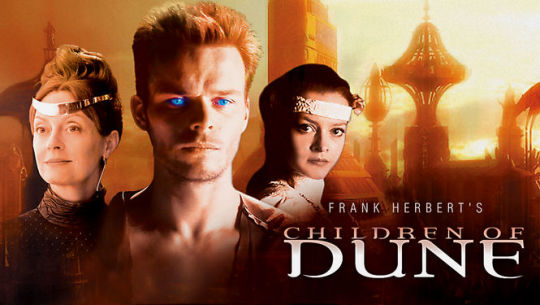
Currently, I’m re-watching what I consider a cult classic. “Children Of Dune (2003)” mini-series. I vaguely remember this show. I had forgotten just how many big name actors where in this epic. Well, if some of these actors weren’t big then, they certainly became a huge name after appearing in this 3 part classic. Julie Cox, Susan Sarandon, James McAvoy, Alec Newman (he looked so good when he was younger), and so many more legendary actors. Two more episodes to go!!
#dune#children of dune#sci fi#sy fy#syfy#classic sci fi#science fiction#fantasy#fantasy movies#movie fantasy#action fantasy movies#special abilities#movie streaming#now viewing#now playing#now watching#many stars#celebrities#actors#actresses#handsome actors#lost shows#forgotten movies#movie classics
19 notes
·
View notes
Text

17 notes
·
View notes
Text
James McAvoy, Son Of Dune, Has Advice For His Father, Dune Star Timothée Chalamet
"I was in an adaptation of the second and third books. He is in the first book. And he's playing a character who ultimately becomes my father, in terms of the character dialogue. So, no. I've got no advice for him. And he doesn't need any advice from me, he's a cracking actor.
But I'll tell you what's one really good piece of advice that was given to me once, was by the cast of ... what was the show called again? Farscape. And it was at the L.A. premiere of Children of Dune, and they said to me, that the thing with this sh*t, i.e. science fiction, is that you have to believe it more than you believe good writing. Good writing, you can just do. It's easier. But this stuff is hard, because it's so bonkers, you know what I mean? And I've really, I've always remembered that advice and taken it to heart. It's so kept me going really, through a lot of science fiction and fantasy work that I've done. Because it was Claudia Black that said it. And I think that's just good advice for any actor doing any kind of science fiction and/or fantasy, you know?"
full article from slash film (october 2021) is under the cut
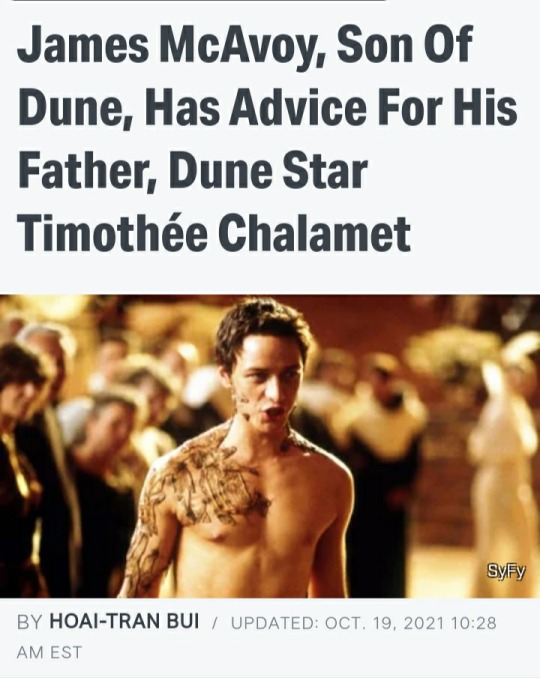
Frank Herbert's "Dune" is a dense, monumental sci-fi tome with several feature film disasters to its name. David Lynch's 1984 "Dune" was such a critical and commercial bomb that the filmmaker disowned it. Alejandro Jodorowsky's failed attempt to adapt the sci-fi classic was so infamous that the entire thing was chronicled in an acclaimed 2013 documentary by Frank Pavich. For a while there, it seemed like "Dune" was destined to be given the label "unfilmable" and left to rot on the shelves of Hollywood's never-made productions. That is, of course, until Denis Villeneuve's upcoming "Dune," which has already racked up heaps of praise and hype through the film festival circuit.
However, unbeknownst to many of the American public, Syfy (back then known as the Sci Fi Channel) had already done it — they had made a successful adaptation of "Dune." Actually, they made two successful adaptations: the 2000 miniseries "Frank Herbert's Dune" and the 2003 sequel, "Frank Herbert's Children of Dune." Both three-part miniseries won several Emmy Awards and were some of the highest-rated programs to ever be broadcast on the network.
Notably, the latter miniseries, "Children of Dune," which adapted Herbert's two sequels "Dune Messiah" and "Children of Dune," starred a young, baby-faced James McAvoy before his Hollywood breakout in films like "The Chronicles of Narnia" or "Atonement." And he remembers it all, though "that was a long time ago," he told me in an interview to promote the audio drama "The Sandman Act II." And though he's far removed from the days of playing one of the titular "Children of Dune," McAvoy could not be more excited about Villeneuve's take on the film, or for Timothée Chalamet's performance as his character's father.
From Son of Dune to Fan of Dune
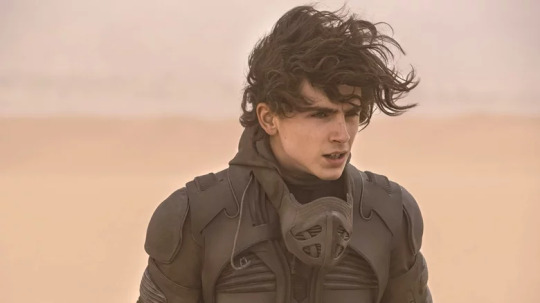
James McAvoy knows a thing or two about donning those piercing blue melange-laced eyes and doing some crazy fight choreography in the desert. He starred as Leto II Atreides in the three-part miniseries "Children of Dune," which aired on what was then called the Sci Fi Channel. The miniseries has some of the limitations of a sci-fi cable show (it doesn't look nearly as epic in scope as Villeneuve's film does), but the TV adaptation was mostly praised for turning what a dense, complex story into something a bit more palatable. Even so, as with any sci-fi or genre project that the actor has tackled, McAvoy said that, "this stuff is hard, because it's so bonkers, you know what I mean?"
But even while he doesn't have any specific advice for Chalamet as a former "Dune" star ("He's a cracking actor," McAvoy gushed) he does have advice for starring in a heady sci-fi project like "Dune." McAvoy explained:
"I was in an adaptation of the second and third books. He is in the first book. And he's playing a character who ultimately becomes my father, in terms of the character dialogue. So, no. I've got no advice for him. And he doesn't need any advice from me, he's a cracking actor.
But I'll tell you what's one really good piece of advice that was given to me once, was by the cast of ... what was the show called again? Farscape. And it was at the L.A. premiere of Children of Dune, and they said to me, that the thing with this sh*t, i.e. science fiction, is that you have to believe it more than you believe good writing. Good writing, you can just do. It's easier. But this stuff is hard, because it's so bonkers, you know what I mean? And I've really, I've always remembered that advice and taken it to heart. It's so kept me going really, through a lot of science fiction and fantasy work that I've done. Because it was Claudia Black that said it. And I think that's just good advice for any actor doing any kind of science fiction and/or fantasy, you know?"
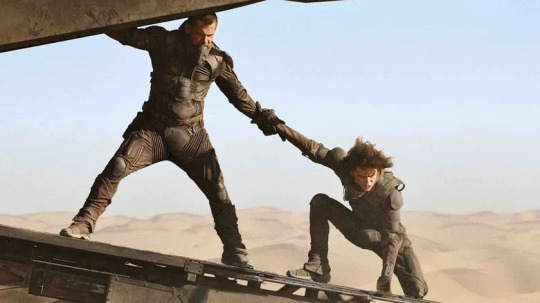
"It's dead exciting."
For the time being, McAvoy is content to move past his days as a son of "Dune" and become a fan of "Dune," particularly of Villeneuve's upcoming adaptation of Herbert's 1965 classic novel and, hopefully, their "bonkers" sequels.
"It's dead exciting," McAvoy said. "Those were a bunch of books, I mean, I've read them all cover to cover, and I love those books. They're crazy. As they get into their final two or three books, I mean, the level of bonkers is unparalleled. But I love them. And so I'm dead excited to see what he does. He's a brilliant filmmaker. A brilliant maker of science fiction. And I do love my science fiction, as well as fantasy. So yeah, I'm whetting my lips."
Source
#james mcavoy#timotheechalamet#timothee chalamet#timothée chalamet#dune#dune 2#2021#leto II#leto 2#paul atredies#chani#house atreides
72 notes
·
View notes
Video
youtube
Dune Messiah - Bene Gesserit Doublespeak - YouTube
- - - - - - - - - - - - - - - -
Princess Irulan - Wikipedia
(DeepL訳)イルラン王女 /ˈɪrəlɑːn/[1]は、フランク・ハーバートが生み出したDuneの世界に登場する架空の人物(略)
イルランと牧師母ガイアス・ヘレン・モヒアム、そして後のジェシカとの二重の会話は、彼らの手話に字幕を出しながら、全く別の会話が言葉で展開されるという豪華なものだ」[30]。
[30] SyFy’s Children of Dune Miniseries Delivers On Emotion When Philosophy Falls Flat | Tor.com
- - - - - - - - - - - - - - - -
言ってることと手話で内容が違う面白さ。こういうのもストループ効果か。字幕版で見ると各々に字幕がつくのかな。
3 notes
·
View notes
Text

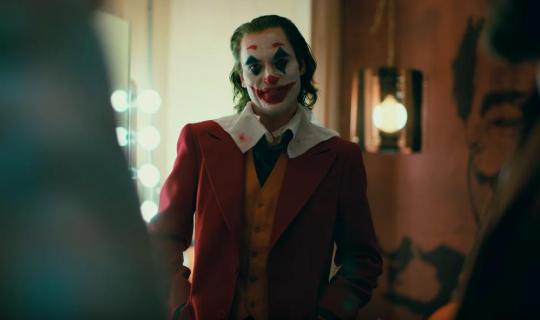
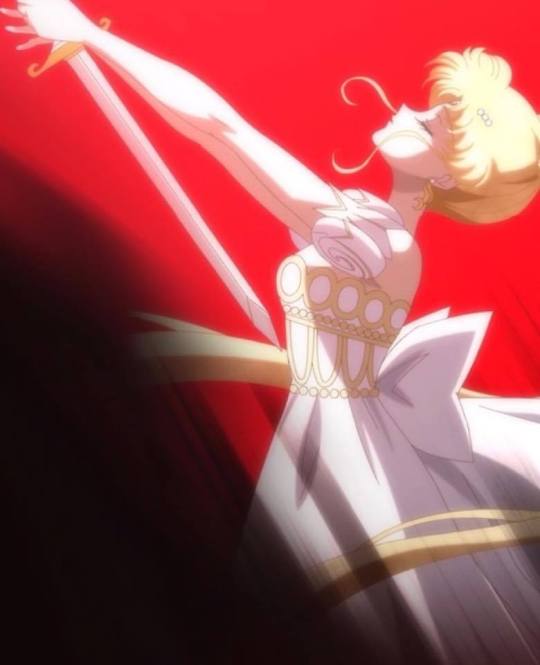

"Most people are other people. Their thoughts are someone else's opinions, their lives a mimicry, their passions a quotation."
- Oscar Wilde
Images: Syfy's Children of Dune miniseries, The Joker, Sailor Moon/Usagi Tsukino/ Princess Serenity and Rayearth/guerreras mágicas.
3 notes
·
View notes